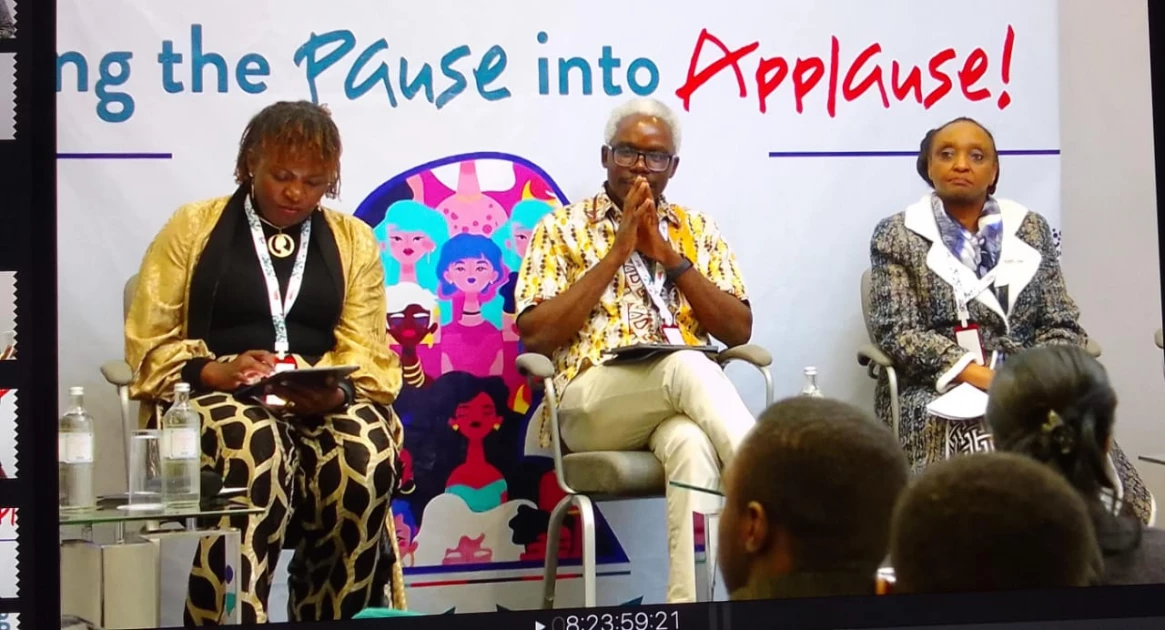Stakeholders urge Gov't to prioritize Menopause care in Kenya

Speaking during an event in Nairobi dubbed “MENOPAUSE – Turning the Pause into Applause”, Evelyn Opondo, African Director of the International Centre for Research on Women (ICRW), emphasized the urgent need for government intervention.

Audio By Carbonatix
Stakeholders drawn from non-governmental organizations, medical professionals, and members of the public have raised alarm over what they describe as longstanding neglect by the Ministry of Health in addressing the challenges faced by women during menopause.
Speaking during an event in Nairobi dubbed “MENOPAUSE – Turning the Pause into Applause”, Evelyn Opondo, African Director of the International Centre for Research on Women (ICRW), emphasized the urgent need for government intervention.
“Menopause is not just a women’s issue; it is a family, workplace, and economic issue. The government must prioritize it to help women remain productive long after their childbearing years,” Opondo said.
The event also featured a powerful testimony from Supreme Court Judge Njoki Ndung’u, who recounted her personal struggle with menopause.
She revealed how unexplained symptoms such as brain fog initially left her fearing she had early-onset dementia or Alzheimer’s disease.
“I went abroad for medical checks and was eventually diagnosed with menopause. When I returned to Kenya, I was shocked to find that there were no specialists in this field. Most doctors are trained only in maternal care, not the aftermath,” she said.
Justice Ndung’u also highlighted the strain menopause placed on her family, particularly her teenage children. “I was navigating menopause while raising teenagers. My children thought I had turned into a terrorist,” she said, drawing laughter but underscoring the serious family challenges involved.
Her testimony resonated with many women at the forum, who urged the government to establish a comprehensive policy on menopause care.
They called for structured systems covering awareness, diagnosis, treatment, affordability, and sustainability, stressing that life after maternal health is just as critical as maternal health itself.
Medical experts at the event echoed these concerns, pointing to gaps in training. They noted that medical schools in Kenya provide little to no focus on menopause management, leaving many health workers ill-prepared to support women through the transition.
Dr. Edward Serem, Head of the Division of Reproductive and Maternal Health at the Ministry of Health, acknowledged the shortcomings. “It is true that menopause has been neglected. We have never had structured discussions as a country. I will constitute a committee to drive this agenda forward so that, in the coming months, progress can be felt even at the county level,” he assured.
Also speaking at the forum, Dr. Amakove Wala urged women not to suffer in silence but to actively seek help and share knowledge. “Don’t be afraid to say something is not right. Don’t be afraid to seek knowledge and pass it on,” she advised.
The calls come amid growing recognition that menopause, long shrouded in silence, needs to be integrated into Kenya’s national health priorities to safeguard women’s wellbeing and overall societal productivity.


Leave a Comment